Q: Let’s start by asking you to explain where you’re going and why you’re going now.
A: I’ve spent 40 years working since I left school. It was always my intention around this time just to try and give something back. To use all the management experience that I’ve gotten over the years and give it back in some form, in some way.
An opportunity has come up through a national charity who are looking for a CEO, Anam Cara. This is a charity that supports bereaved parents and siblings. It was established in 2008, it’s growing and wants to grow further and it needs a CEO to do that. And this is something that’s very close to my heart.
Most people who know me would be aware that Orla and I lost our only child, Cillian, to cancer back in 2011. So this is something I know I can help with, using all the experience that I’ve had to make a little bit of a difference.
Q: Are you hoping that your contacts in racing and breeding will be able to help Anam Cara?
A: I’m not going to go looking for support. I’m not new to doing charity events – a few years ago I did a cross-country cycle for a cancer charity and the industry have always been very good to support charitable cases.
I’m a bit uncomfortable saying this, but I was over at Goffs the other week, breaking my news to people. And there are quite a few people in the industry who are bereaved parents, who have lost a child. I want them to know that I’m there for them. If anybody in the industry ever needs that help, they can ring Anam Cara and know we are there for them.
Q: When do you start?
A: The start date is November 14th and I’d hope to take a week off before that just to gather my thoughts.
Q: You have been with the ITBA for 14 years. How did you come into the industry?
A: When I first met Orla I was instructing in the military college. Orla’s dad, Frank Stewart, kept a couple of horses and I got the bug from him. I mucked out, did online courses and even bought a broodmare and joined the ITBA.
One day I saw an advert in The Irish Times. Goffs were looking for a facilities manager. I never thought an ‘outsider’ like me would get a job like that but a friend said to me ‘Well, if you have that attitude you’ll never get anywhere.’ So I applied for the job and, as they say, the rest is history.
I spent nine years at Goffs and enjoyed every minute of it. It was very, very demanding, very tough. There hadn’t been any capital investment made in Goffs in quite some time and, just calculating recently, I think over a period of five or six years I would have been responsible for in excess of €10 million in capital investment.
This was a time when you had triple standings at some sales, and moving horses was a logistical nightmare. We were using Punchestown, Naas and the Curragh to offload horses, but we did it.
I was also responsible for a number of other outside events which came into Goffs – Santa’s Kingdom, Kildare Growers, the snooker. We managed to get revenue in. There was also a compulsory purchase order on some land and we got a good deal for the shareholders. Goffs holds wonderful memories. Every time I drive down to the ITBA offices I see the Goffs Avenue sign and it reminds me that I sort of penned that name to it.
Q: And then you switched to the ITBA job around 2008?
A: The work in Goffs was becoming very, very difficult. It was a time when Cillian was sick and I was putting probably too much time into my work, you know, to kind of mask some of the pain that both Orla and I were suffering.
The job came up in the ITBA – Michael O’Hagan and Niamh O’Sullivan had it before me. I was a member of the ITBA, I was on the Kildare-Dublin regional committee, and I remember saying to the then chairman Joe Hernon that I’d like to apply for it because Goffs was getting a bit too stressful!
I honestly believed that the ITBA job would be cushier. It was far from it but it has been an amazing time.
Q: The global recession hit just around that time which must have put you under immediate pressure from breeders?
A: Yes and no. When I took over the job there was a general perception that the ITBA was a bit of a gentleman’s club. That the ITBA was run by stallion men and that it didn’t reach out to the wider breeding industry. One of the things I was asked to do by various chairpersons was to try and change that perception. So, at the outset, we said the goal here now is to make the ITBA more accessible and to progress the ITBA into what it is today. And I’d have to be very proud of that.
Going back to the downturn in the economy, we were looking at a time when there was huge overproduction in the country, a time when we were producing 12,000-plus foals and they couldn’t all find homes. So, yes, we had breeders ringing up to give out but, generally speaking, they understood.
I remember one day during the crisis, the sales were on in Goffs and, even though the whole world was nearly stopped, we were still able to sell our stock. So even though it was difficult for breeders, they realised that there was still a market and there will always be a market for good, well-bred horses.
Q: Would it be fair to say the ITBA was very flat-dominated at that time? Maybe it still is that way as the flat is admittedly much bigger than National Hunt?
A: Well, it would be fair to say there was that perception but certainly that’s no longer the case. From the early stages we got the big National Hunt people more involved.
All you have to do is look at the Weatherbys ITBA National Hunt Fillies Bonus Scheme. Before that you had the Bewley’s scheme headed up by Jim Mernagh. In 2011 the mares’ allowance in NH races was increased from 5lb to 7lb. We had a big National Hunt forum in Leopardstown the following year where there were passionate calls for a proper fillies’ programme of races. That was a turning point, in my view. Suddenly owners and trainers who had never had fillies before were buying them.
Since then people have realised that the ITBA is not just for flat breeders. It is very, very, very determined and ambitious to treat all breeders, big, small, flat and National Hunt with the respect that they deserve, as a representative body should.
Q: The ITBA seems to be a lot busier these days than in years gone by. Am I right in thinking the number of events in the calendar has exploded?
A: Absolutely, that was a plan. Even before I took the job there was a feeling that we only had one or two events each year and we needed to get out there and deliver more for breeders.
What people may not recall is that, in the space of 18 months, there was a new team in the ITBA – Kerry Ryan, Regina Byrne and myself. We had a team dynamic, a passion and enthusiasm for what we were doing. We said we would roll up our sleeves and we will run anything that we can, as often as we can, if it’s to benefit breeders.
Q: Kerry and Regina have also moved on. What can you say about their contribution?
A: When you look across the water at the TBA, they have nine members of staff. There were three of us. So I don’t even need to say any more about what it was like to work with Kerry and Regina. They’re absolute legends, you know, and we achieved so much.
Q: The National Breeding and Racing Awards in The Heritage every January is probably the best night of its kind in the industry. Was that the hardest one to pull off?
A: It’s a very special event run by a very good committee. Personally I love when the smaller breeders win awards. People like William Flood, the late Hugh Hyland, the McEnery family, and Flooring Porter’s breeder Sean Murphy. There’s a wide array of people getting awards and it’s important the politicians are present on the night to see that.
People would say that was the highlight of the year but what they don’t remember is that, some years, the awards were immediately preceded by a two-day industry expo in Goffs or Leopardstown. Yes, there were different committees but the heavy lifting for both events was done by the full-time officers. Sometimes you have to take a step back and ask yourself if that was really appreciated because the work that gets done is something special.
Q: Now it’s all change again?
A: We’re heading into a new era for the ITBA. We have Una Tormey, who is fantastic. We recently hired Danielle Deveney and now we have Hannah Marks too. We’ve a couple of events already arranged in Mullingar at the end of the month, and our Next Generation chair Orla Donworth is looking at putting on a seminar. I think it’s important for the representative body to deliver on what the breeders of Ireland want. That’s what we are very, very good at.
Q: What other ITBA events are you most proud of?
A: One of the key events that I would be very happy with was the International Thoroughbred Breeders Federation in 2015. When we hosted it we really opened it up to more than 30 countries and it became a phenomenal five-day event that showcased the Irish bloodstock industry. It was fantastic. We had a veterinary conference, an international symposium, stud visits, it was just out of this world. It was always a pleasure engaging with breeders all over the country. I’d like to think I played a key role in keeping the breeding industry open when Covid broke. That was certainly a time of huge pressure.
Q: Is there work to be done to reconnect with breeders after Covid?
A: 100%, but we did plenty during Covid too. We had online talks, webinars, we got out there as best we could. But we have to have that connection and we’re going to get that back. It’s all about getting out and about, meeting people, getting feedback and delivering on that feedback.
Q: Did you get much criticism or abuse in your time with the ITBA?
A: That becomes part of the job. Life isn’t easy. Work isn’t easy. We’re there to represent breeders and we have to be seen to be doing it best. And sometimes we don’t always get it right, you know.
Let me give you an example. We had our clashes with [breeder] Gerry Callanan over the Foal Levy. I always respected Gerry’s opinion though maybe I didn’t always like how he delivered it! But we have others like Gerry who are constantly keeping us on our toes. You know what? I wouldn’t have it any other way. That’s the way it should be. Because you know we don’t get everything right, we need people to tell us that we should be doing things a little bit differently.
But what I would say is that there are more people now that are more appreciative of the work that ITBA do on their behalf than in the past. So those calls that we are getting are not as frequent because I think they know that we have a team here that will leave no stone unturned to try and get a result for those breeders.
Q: How do you feel the ITBA handled Brexit?
A: You’d have to be really, really proud of the way the organisation worked through Brexit, at a time when there was so much uncertainty. I appeared before two Oireachtas committees to explain the impact it would have having on breeders and the industry. That was well before Brexit hit.
When Britain finally left the EU, you had people ring up not understanding the work that was going on behind the scenes. We had to keep fighting and there are still certain areas that we need a little bit more clarity on.
As we speak there are meetings between the Department and their French counterparts to look at consolidating a bipartite agreement to replace the tripartite agreement that I was involved in setting up with the Department all those years ago. So, yes, we’d be very proud of the work we’ve done. Are we happy with the outcomes? You’re never happy really and there is still an amount of uncertainty.
Q: In your opinion, does racing still carry clout in the corridors of power?
A: Over the years we have strived to develop a good relationship with politicians and officials. And we have done that. I think we have a good relationship with the Department [of Agriculture] at the minute. Don’t forget that Pippa Hackett is a member of the association. Minister Martin Heydon is doing great work on our behalf. The Tipperary TDs Jackie Cahill- who is chair of the Oireachtas Agricultural Committee - and Michael Lowry are great supporters of the association, as is Peter Burke, the Minister for State from Longford-Westmeath.
And of course there are senior civil servants who are looking after us, but I don’t think the industry do enough. I think our lobbying is weak and I think we need to do a little bit more.
Q: Can the ITBA do this on its own or in conjunction with other bodies?
A: One of the highlights, I would say, of the last 10 years was the establishment of the Alliance for Racing and Breeding. It consisted of the breeders, trainers, owners, the stable staff, and the jockeys. It was coordinated by myself and [HRI board member] Elizabeth Headon and we got access anywhere we wanted. We had many meetings with different Ministers and I believe we got good results. The increase in betting tax is one that springs to mind.
Q: What are the big issues coming down the line?
A: Staffing is a huge, huge problem that we need to solve. Work visas [for foreign nationals] have been a difficulty. We [racing and breeding] are still not on the eligible list which we should be. They granted us 100 but it’s nearly impossible to get them. Rather than the breeders making a submission, and then the trainers, and then the breeze-up boys, we need a collaborative approach. That could be driven by the ITBA, as it was in the past.
Then there’s always a need to lobby for funding. For example, we need to get our share of the the Brexit Adjustment Reserve and TAMS. Remember, Horse Racing Ireland is a semi-state body and they are a bit hamstrung in this regard.
Q: In the past year or two we have seen the Irish Horseracing Regulatory Board get access to stud farms as part of their anti-doping strategy. How is that going?
A: This has been a hot potato for a number of years. Compliments to John Osborne and Horse Racing Ireland for bringing together all these regulatory matters which need to be addressed. The anti-doping thing was long and drawn out and it was resolved eventually. Every industry has to move with the times. Breeders have nothing to hide and access to their yards should never have been a problem. I’ve had nobody ringing me up to complain about it. People are a little bit resistant to change. It’s accepted now and it’s not a problem.
Q: You’ve worked under seven or eight different chairpersons. Does that mean the organisation is always changing direction?
A: In the last couple of years the ITBA has looked at the whole area of change. This can be a challenge for all organisations, especially those who rely on volunteers. We looked at this and we said we want to be relevant in 10 years’ time. You know if we keep going the way we are going we might not be relevant in 10 years’ time. It’s about succession, it’s about making sure that the ITBA is in a very, very good place.
We did surveys and we were blessed at the same time that we got Una Tormey on board who is very good at this whole area of governance. We had a strategic review carried out and we’re looking at changing to a company limited by guarantee. All that is in the early stages. But it is progress.
We’re looking at reducing the board size and giving more responsibility to regions. We found it difficult to get volunteers at regional level to organise events and so we did that centrally. That meant we did lose contact with the grassroots breeder and we’re getting that back again.
Q: Cathy Grassick is the current chairperson. Will there be many changes during her tenure?
A: I remember Cathy since she was spotting in Goffs. She served on the old Kildare-Dublin committee. I asked her to put her name forward for Council. We identified her early as future chairperson material. Cathy is energetic and she understands the breeding industry better than most. In a change of policy, Cathy will stay on for three years rather than two. That is better for the organisation and better for the breeding industry.
There is time when change has to happen. I’m here 14 years and that’s too long to spend in an organisation. You need continuity and you need succession planning. It’s time to let a new broom come in and Cathy is the person to do that because she’s young and she has that energy that will attract younger people to take a more active role in the Association, especially if its seen that the association is serious about bringing them into the fold.
We want to make the organisation that bit more relevant for younger people so that they have something that they can move into in 10 years’ time.
Q: What advice would you give your successor?
A: If you’re heading up a representative body for breeders it is key that you’re able to handle the politics of racing, the politics of breeding and general politics. Because you are going to have to manoeuvre your way to get what’s best for breeders.
It’s not easy. There are different people out there that would have different interests. For example, look at the very, very successful IRE Incentive scheme. That nearly didn’t get across the line because of the internal politics.
So my advice to the next CEO would be to make sure that the breeding industry - which is the biggest stakeholder in the industry - is getting its just rewards. When you start trying to get a portion of the Government funding from Horse Racing Ireland, you’re going to meet political opposition from different people. It’s up to the ITBA to be able to stand up and say. ‘Well, we have our product and we need this because, et cetera.
Q: What’s your parting message for the industry?
A: The last few weeks has been a very emotional time for me, leaving an organisation I love, an organisation that has been an integral part of my life for the last 14 years.
I am very happy with my decision because I know that the ITBA will continue to grow and become an even more effective association.
Irish breeders are very lucky to have dedicated exceptional employees in Una Tormey, Danielle Deveney and Hannah Marks, who are passionate about the bloodstock industry.
We must never forget that the ITBA is a voluntary body and my lasting memories of the association is the time and unstinting commitment of the many council members who have grown the association over the years.
I am particularly proud of the current chairperson Cathy Grassick whom I have known a long time and her energy, passion and love of the industry is already making a difference. To all those great people who have had my back and supported me over the years - thanks for the memories.
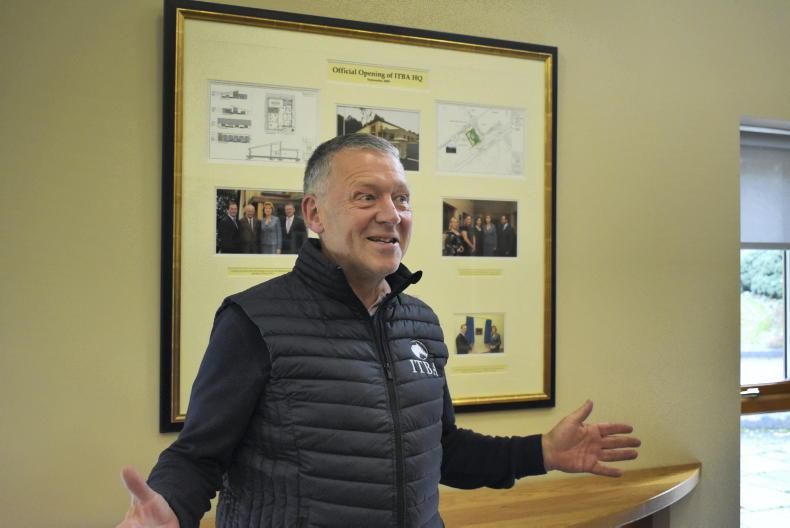

 This is a subscriber-only article
This is a subscriber-only article
 It looks like you're browsing in private mode
It looks like you're browsing in private mode




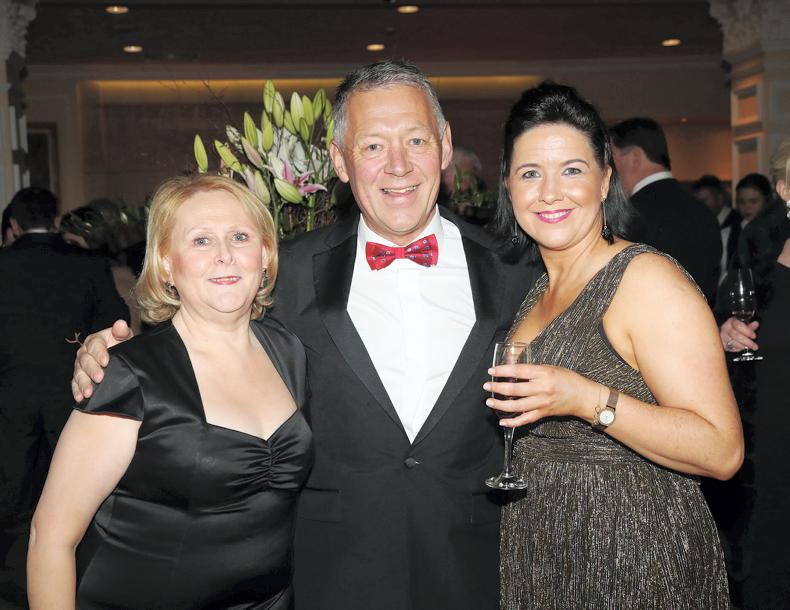
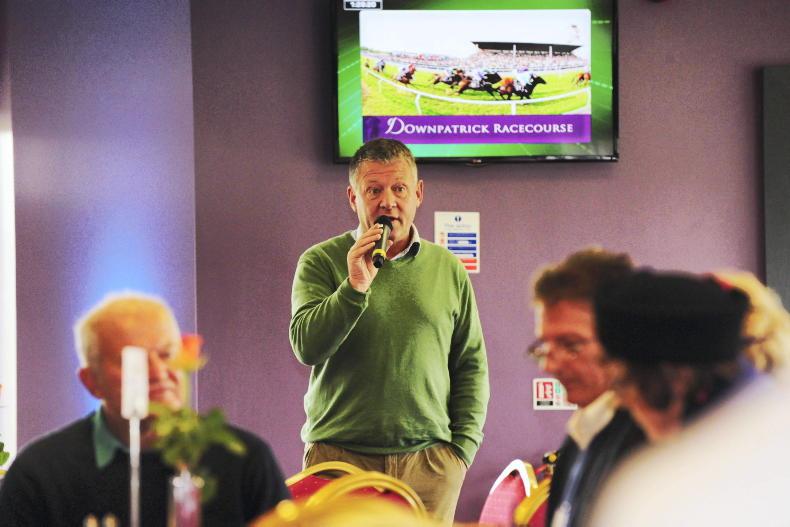
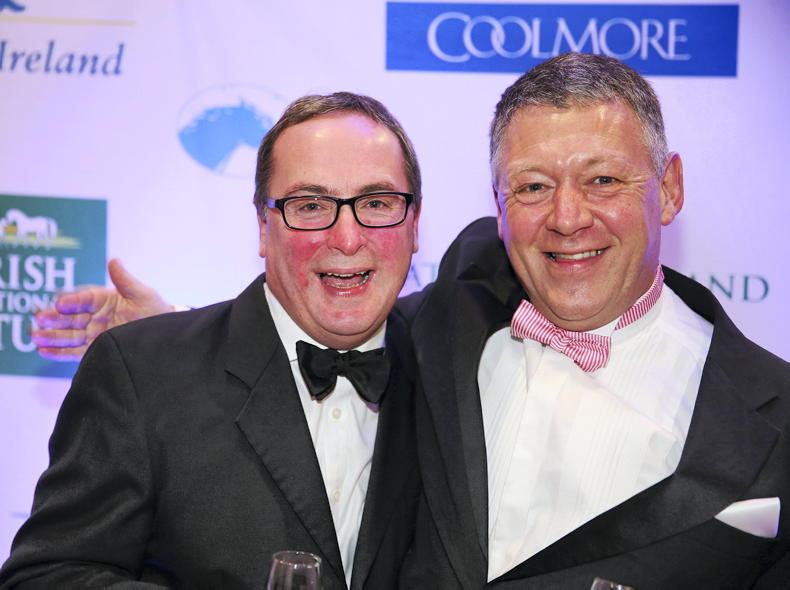
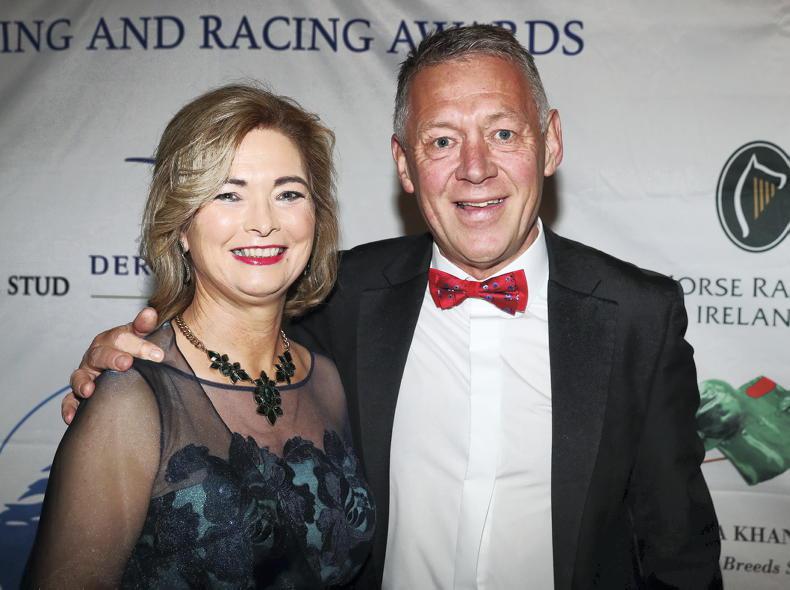

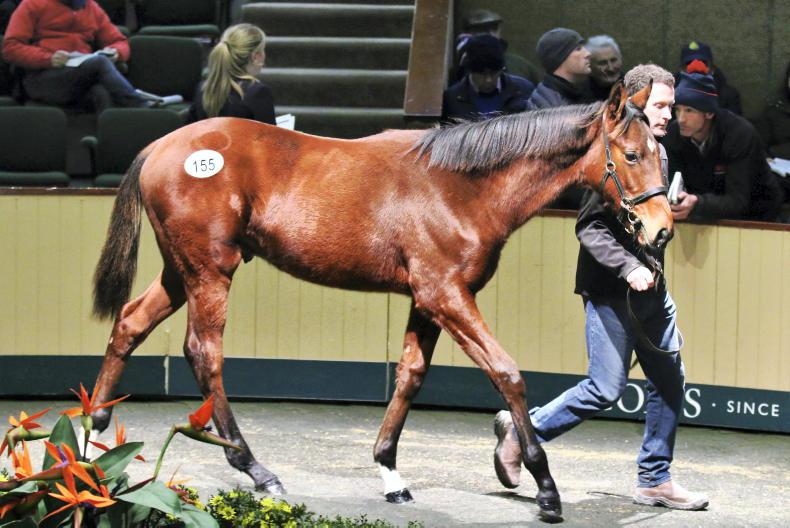


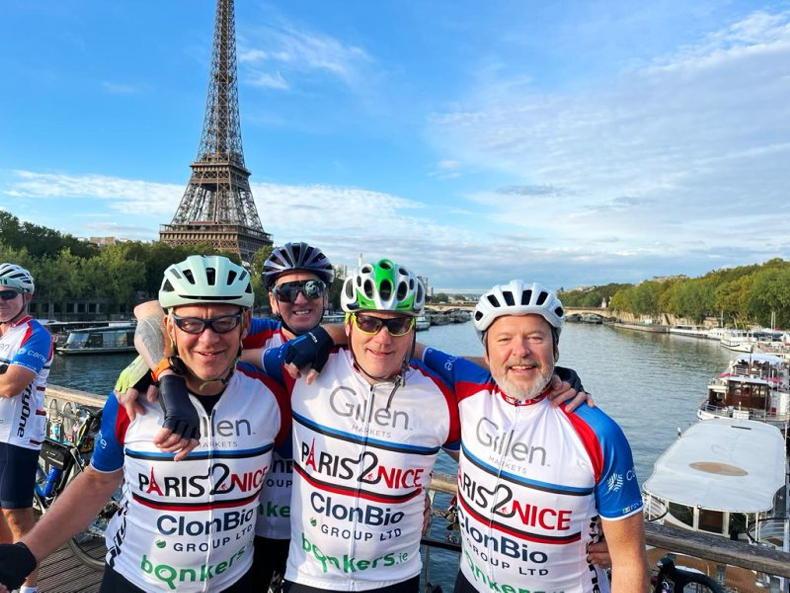
SHARING OPTIONS: